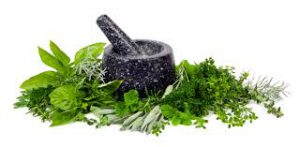Contents
Indian Powders…Where Do I Begin?
Using Indian powders for hair care has been around for ages. This is a part of the Indian culture, a practice referred to as Ayurveda. It focuses on the balance between the spirit, mind, and body.
It uses plant-based treatments which may be derived from roots, leaves, fruits, bark, or seeds. This being achieved through mainly natural processes and the end result usually being a natural product without any chemical manipulation or enhancement.
There is a whole host of Indian powders which are used to combat various hair challenges, however, I will highlight a few of the more popular powders and their uses as listed below :
Tulsi
This powder is often known as ‘holy basil‘. It is known to be a very healing plant and is used for quite a few body ailments – both internally and externally. It can be used to help combat dry, itching scalp and helps to promote hair growth.
Shikakai
Shikakai is also known as ‘acacia concinna’. Its word literally translates into ‘hair fruit or fruit for hair’ and is indigenous to India. It is typically used as a cleanser for hair and body. This plant has a soft lather to it because its bark has saponins which create foam once it is added to water.
It is high in vitamin C, A, D, E, K and also antioxidants – necessary nutrients for healthy hair. It helps with hair growth, moisturizing, and strengthening. It is also a great natural cleanser.
Aritha
This powder is also known as ‘soapnut powder‘ and comes from the fruit of the soapnut tree. It also has saponins which act as natural foaming agents. It can be used on the hair, body as well as on delicate fabrics. It is best used as a tea for cleansing versus as a paste in the hair. It can also be combined with Amla, Neem, and Shikakai for a very deep cleansing and nutritive hair wash.
Brahmi
Brahmi powder can be used by itself as is the case with most of these ayurvedic powders. Brahmi helps to make your hair thicker and provide more nourishment. The powder is typically used with other powders such as amla, neem, or tulsi to help get rid of a dry and itchy scalp. It helps the overall health of your hair, including preventing split ends, reduction of hair loss, and reduction of dandruff if used regularly.
Henna
Henna is one of the most popular Ayurvedic powders for naturals. It is used to help thicken and color the hair – most times the grey hair. It can also be used as a henna gloss treatment or as a fully-fledged hair strengthening treatment.
Cassia
Cassia Obovata is also known as ‘senna’, and is similar to henna powder; however, it does not stain the hair. It provides great conditioning when used on your hair and helps to further strengthen it. Of course, the more used, the better the results.
Neem
Neem leaves have been used for centuries to make anti-bacterial washes and poultices. This powder can be used on the face, body, and hair. On the face, it helps acne-prone skin; on the body, it helps with eczema and psoriasis; for the hair, it cleanses the scalp and helps with dandruff or other scalp problems.
Amla
This powder is made from the Indian gooseberry, which is a fruit that is native to India. It is known for its high content of vitamin C and also as an antioxidant. Amla is used to nourish the hair and scalp, increases hair volume, and has even been touted to darken your natural hair color with regular use.
Fenugreek
Fenugreek is also known as ‘methi or greek hay’. The seeds are made into a powder form and used as a spice, healing health benefits, as well as in hair care. It helps to make hair shiny, tangle-free, helps to treat hair loss and helps with hair growth. Also used as a preventative for scalp dryness and dandruff.
Most of these powders can be used also as pastes or even combined synergistically to help solve a lot of hair problems. The leaves of these powders can also be used to make oils and used also in hair care. One of the advantages of using these Indian powders, as well as with so many others, is that fact that they are all natural.
Have you tried any of these powders? Or are there any that you would highly recommend?
Please let me know your thoughts, I would love to hear from you.
How would you like to learn how to write an article like this one? To put your thoughts on paper or the web, and allow others to learn from you by having your own blog? It really is not too difficult to learn.
Even more interesting is the fact that you get to choose your topics and maybe by using affiliate marketing, make some extra income. In addition to this, you will be in the company of many others like yourself who will be more than happy to help you on your journey to success. CLICK HERE and see what it is all about!

Hi Michelle,
This is a very interesting article on the power of Indian powders for hair. I may need to get some henna. You know the chemicals in most dye’s you get at the store are very harsh on your hair. A natural product makes so much more sense. Thank you for the valuable information.
Best to you,
Gina
Hello there Gina, Thank you for your visit and your comment. It is so true, the chemicals being used in hair dyes can be take a toll on you, your body and hair, if you are not aware and/or careful. I think Indian powders are a great asset in the natural world of beauty care. Give it a try indeed and let me know your feedback.